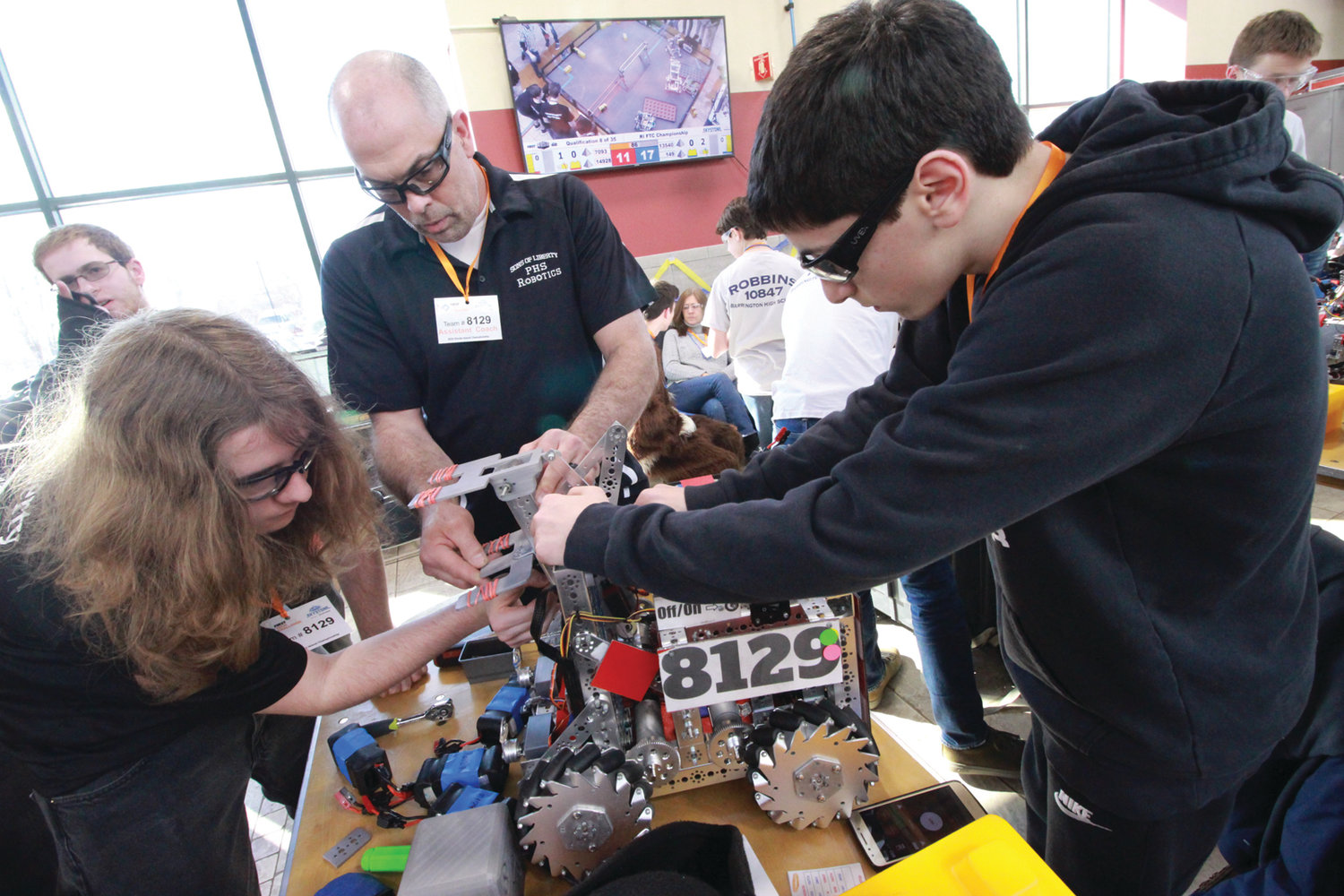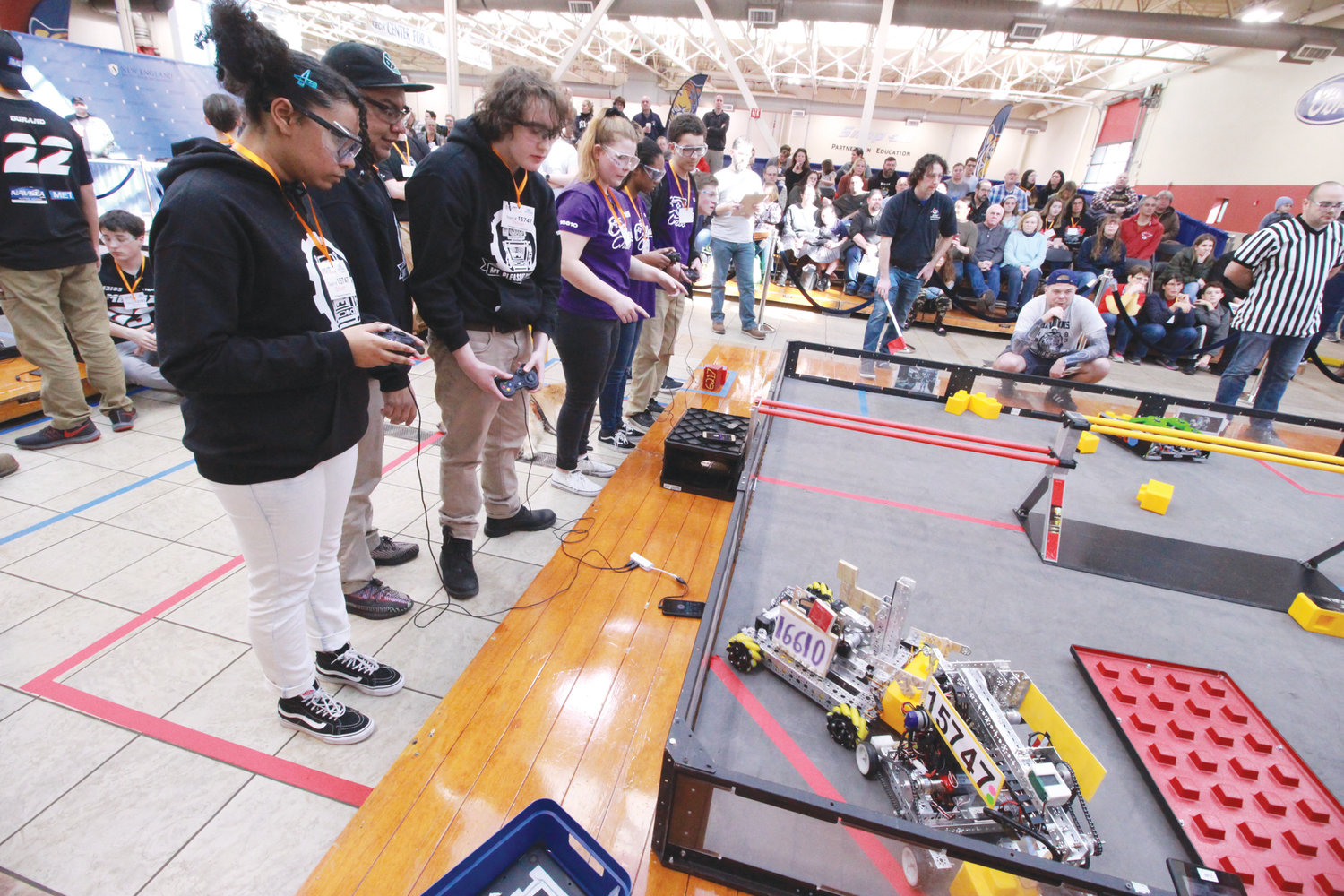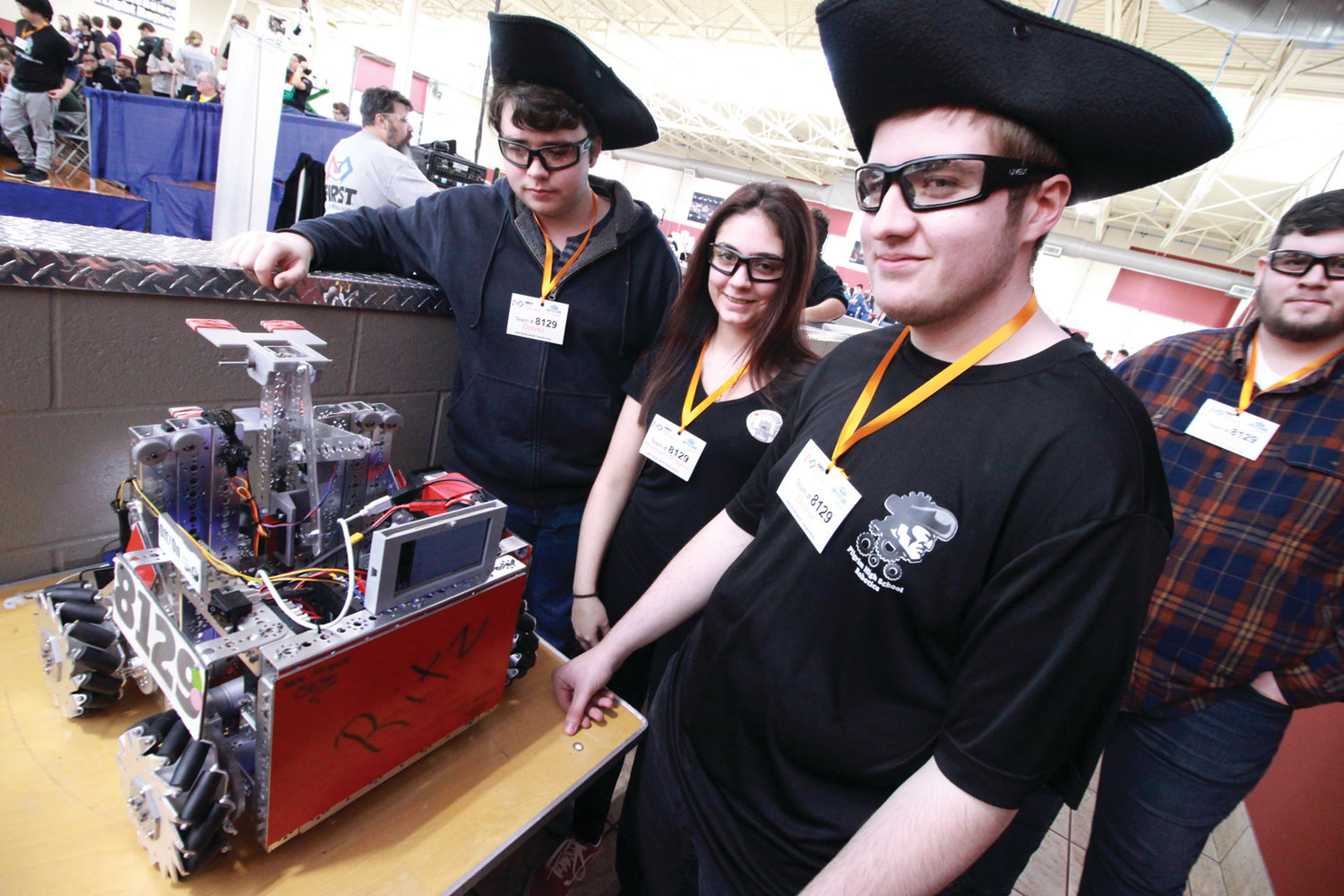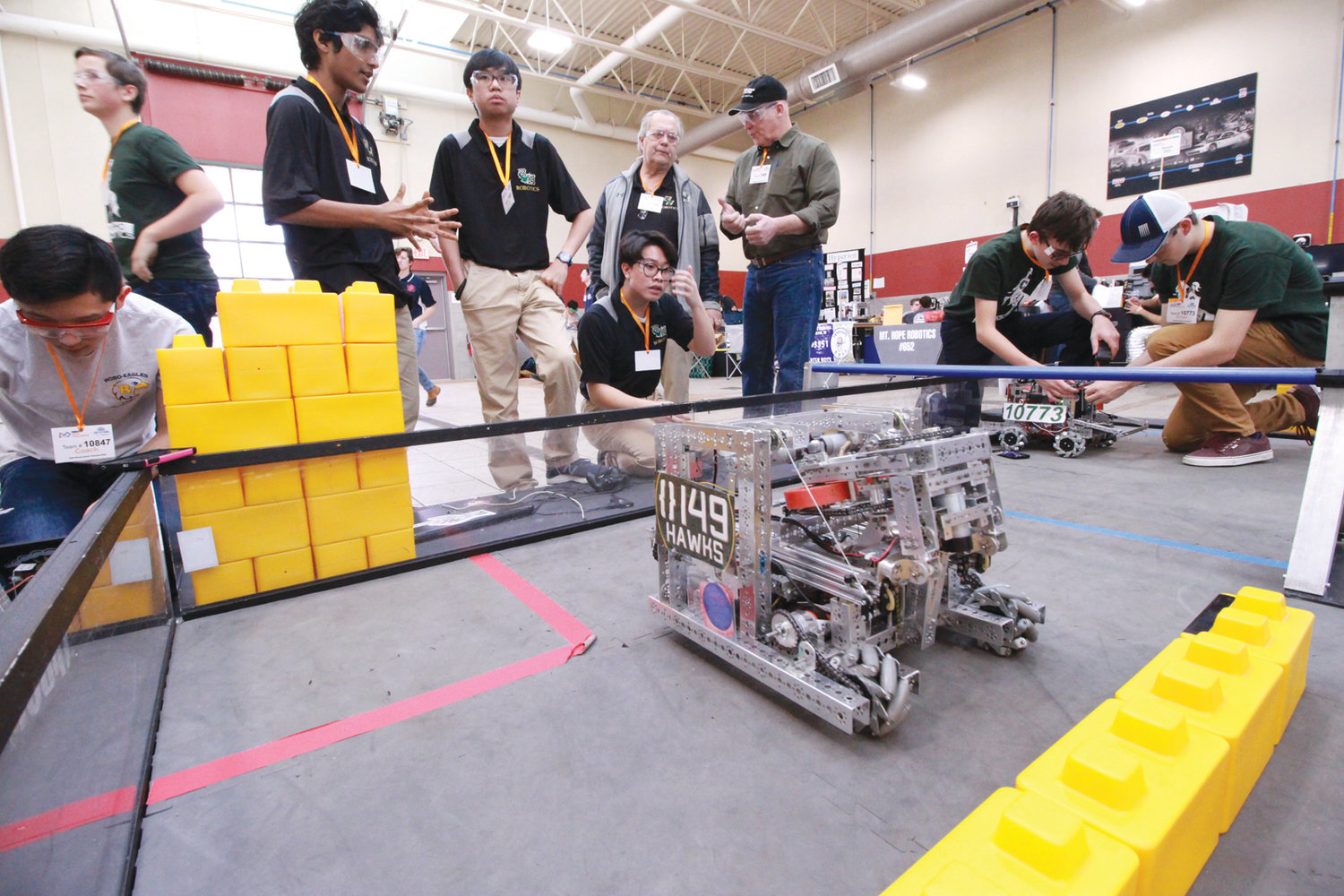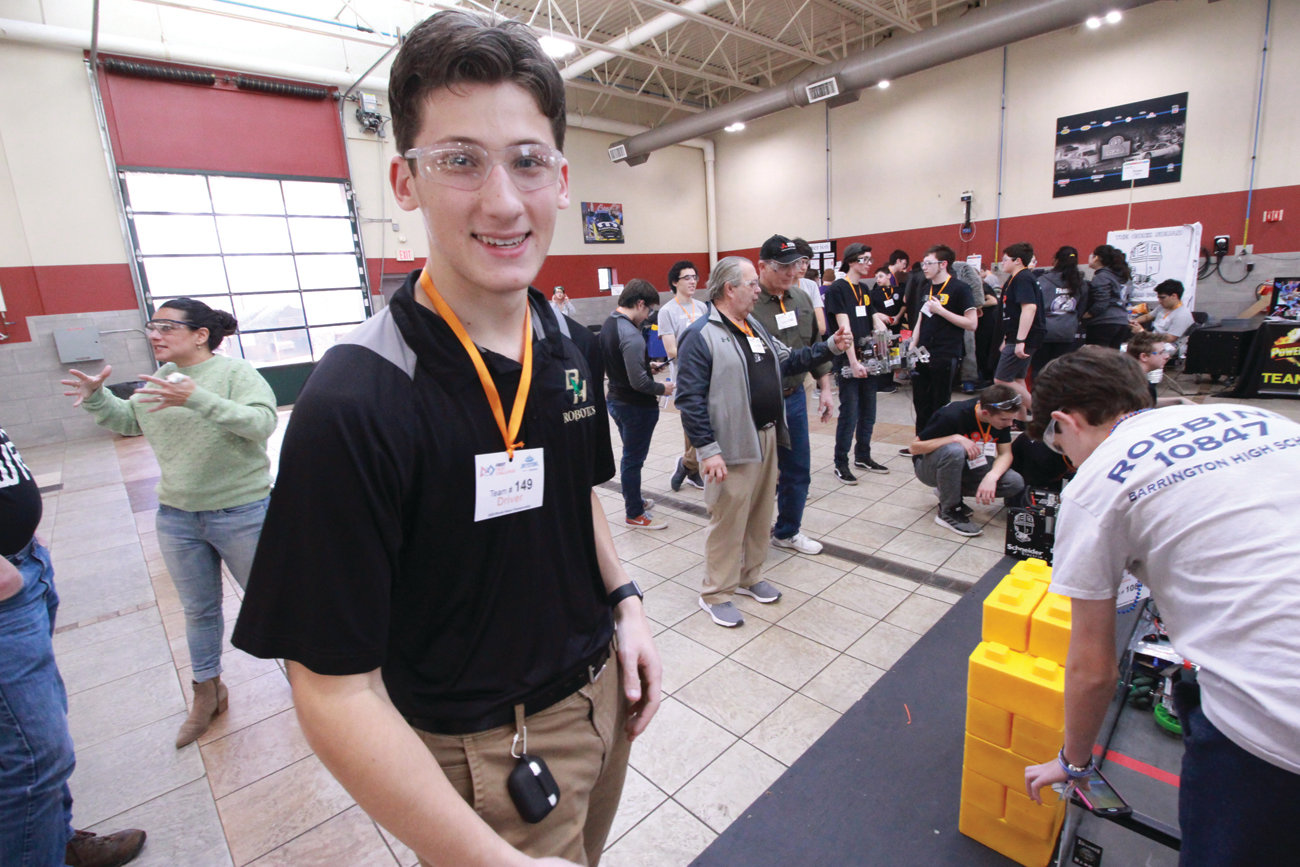Youthful brain power fuels these robots
There’s a lot more to the FIRST Tech Challenge than robots.
Indeed, high school and middle school students build and program robots to perform a series of tasks autonomously and then by driver control.
Like prizefighters, Robots perform in rings before cheering students, parents and friends. Teams work cooperatively and are entered into five rounds in the course of the day. Judges award points for completed tasks, and by the end of the day the two high scoring teams win the right to compete in the nationals that will be held in Detroit.
Robots rule the day, and yet they don’t. It’s the young minds behind the robots and the support they get from friends, teachers and challenge alumni that rule the day.
All of this came together Saturday as 28 teams competed in the state’s 14th FIRST Tech Challenge.
In opening remarks, Steven Kitchin, vice president for corporate education and training at the New England Institute of Technology, talked about the growth of the program and how that has been supported by “organizations who understand the value of science and technology education.” NEIT has hosted the challenge for the past 13 years at its automotive center in Warwick. Sponsorship has also come from the Providence Engineering Society.
As with prior challenges, this year’s event, involving about 200 students, had its share of theatrics as with fanfare teams were called to the ring and the countdown blared over loud speakers. There was no lack, too, of technology as elevated cameras caught the action, projecting it on screens in the “pit area” where teams perfected adjustments to their robots, made test runs, hunkered down over laptops or between bites of pizza, gabbed with teammates or checked their cell phones.
FIRST (For Inspiration and Recognition of Science and Technology) has a faithful following of teachers and students. Many coaches and team mentors are former competitors and return year after year to work with the latest team. Daniel Martini, who graduated from Vets High in 2014 and now works as a mechanical engineer at Yushin America, was a member of the Vets team when Larry West was coach. When Vets became a middle school, West, who now teaches at Pilgrim, built a team – the Sons of Liberty – there. Chris Uth, who dressed as a Pilgrim for the competition, is also a former student of West and has been mentoring the team for the past several months.
To the untrained eye, the competition appears to be little more than motorized Erector-set vehicles facing off in a 12-by-12-foot ring with rows of oversized Lego blocks. The robots are tasked with moving the blocks and placing them on top of each other on a foundation designed for the purpose. Chip manufacturer Qualcomm presented the 2019-20 game, Skystone and the tasks for teams to complete.
Each of the five rounds, lasting only three minutes, is divided into three periods, with the first 30 seconds the autonomous period followed by two minutes of driver control and closing out with the 30-second end game that is also driver controlled.
Yet, for as short a period robots are in the ring – a total of 15 minutes of competition time – the day is packed. Between adjustments to their robots, practice runs and watching rounds, the day speeds by.
Young minds are solving problems, and there’s nothing robotic about that.
Traveling on to Detroit in April to represent Rhode Island are the GONK Squad from North Kingstown High School and Free Wifi club team from Shoreline Robotics of Westerly.


